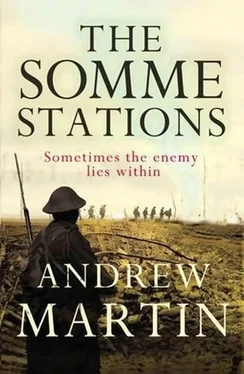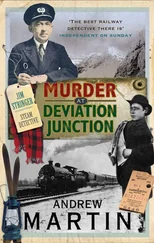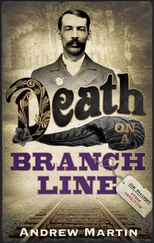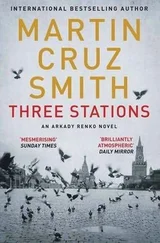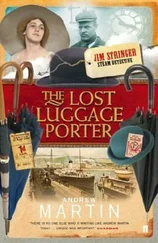Old Station, Holgate Villa, New Station, Naburn Lock… The name posts rolled by clearly in the strong moonlight. After that, the York names stopped. Nobody had had the heart to carry on with the game after what had happened to Tate. We were under only moderate shellfire at the start, and that some distance off, but after the halt for Pozières (where we got rid of most of the shells) some big stuff – six- and eight-inch – did come near, and it rocked the engine.
‘That a regular occurrence?’ Oamer enquired as we rolled on.
‘You’re wondering why we’re still alive,’ I said.
‘I’m only glad you are, fusilier,’ he replied. ‘I’m only glad you are.’
When we came to High Wood, Oamer consulted a document – his plan of the control points – and I stopped the engine where he indicated. To our left side was a dark field of frozen mud with a couple of concrete fortifications; on our right side, stricken trees and men moving about within them – moving either too fast or too slow, and seemingly without reference to orders being shouted by unseen voices.
‘Where’s your control?’ I asked Oamer.
‘Here or hereabouts,’ he said, and he climbed down from the footplate, and entered the woods. ‘No telephone line as yet,’ he called back, ‘so I can’t follow the trail.’
I could see some disturbance in the burnt branches when Oamer disappeared from view – a cold wind blowing. Shells came in – heavy stuff by the sound of it, but far off. The wind blew again: a machine-like, whining noise.
… Silence in the woods for a space…
I looked up at the moon. Most of it was there. It was the reason that I could see too much. I was not sure that I liked the moon. It would reveal what was meant to be hidden. I stepped down from the footplate holding our hurricane lamp and my rifle. I went into the trees. Tinsley stayed on the footplate, rifle in hand. A moment later, he called, from behind my back, ‘Look out, Jim!’ Then came the fast rattling of a machine gun – the Boche taking advantage of the moonlight. No bullet had hit Oamer though. He was striding back through the trees towards me, coming from my left.
‘Wait,’ he called, and he’d seen some movement in the woods.
I shouted, ‘We’re under observation,’ only, that last word being so long, I didn’t get it all out. Another machine-gun rattle came; a longer one now – well, there was a lot of moonlight. Oamer was down. I ran towards him through the trees with Tinsley following.
I touched Oamer’s shoulder; he rolled over, smiled up at me, and I thought: here comes a piece of philosophy – his last one. But instead of speaking, Oamer was moving his hand – his good hand, the one with a full complement of fingers – reaching under his greatcoat. I could not see blood as yet, but I knew that when he withdrew his hand, it would be bloodied. When his hand emerged, however, it was as white and smooth as before, and it held a book: The Count of Monte Cristo . I knew the thing by its dark cover, and by its enormous size. Lying there on the hard mud, with his head resting comfortably on a black tree root, and the shells coming down quite close by, and the cold wind stirring the trees, Oamer passed it up to me with a look of wonderment on his face. A bullet nestled in the book; it had drilled a hole nearly, but not quite, right the way through. A twist of smoke and a smell of burning rose from its paper nest.
‘Good-o!’ I said.
Tinsley and I helped Oamer up, just as though he’d fainted in, say, Betty’s Tea Rooms, St Helen’s Square, York, which I could quite imagine him frequenting, and where I had once seen a man faint.
‘Thank God it’s so densely plotted,’ he said.
I looked at Tinsley, whose face was white, and it did occur to me that, just as either Oliver Butler or Oamer might have loosed off the bullet that did for Scholes on the first day of the Somme battle, so Tinsley – the sound of his own shot being drowned out by the machine-gun rattle – might have fired on Oamer from the footplate of the Baldwin.
Mainly Amiens: Late September 1916
Dearest Jim,
What joy to have your letter, and to read that you are a now a non-commissioned officer. I told Lillian, who told Peter, who asks, ‘Does this mean that you will be sitting in the saloon bar of the Old Grey Mare from now on?’
(Is that a joke, Jim?)
Other messages while I am at it. Sylvia says that, when the bombs come, you are to ‘make yourself small’; also ‘What are duckboards?’ and ‘Do you like figs?’ (I don’t know why this last, and she is asleep now, so I can’t ask her.) Harry asks, ‘How are you getting on with the “Count of Monte Cristo”, and are you up to the release from prison of… Somebody or other. Jim, you are going to have to read this book and send him a separate letter all about it. If anything could raise you further in his estimation, which I rather doubt, then that would do it. Harry is really veryproud of you for driving engines at the front, and for my part, I can’t see why there isn’t a ‘Boy’s Own Paper’ story especially devoted to your work! Quite honestly, I also see no earthly reason why you shouldn’t be a commissioned officer before long, now that you have got a foot on the ladder. I believe that more and more men from the ranks are being commissioned all the time, and it seems this can happen quite suddenly, and to the unlikeliest of people, if the evidence of our soldiers’ buffet at the station is anything to go by. I am thinking here of a certain Major Plumptree (I assure you, that is his name) who has been making a nuisance of himself in the buffet these past weeks. Don’t worry by the way, Jim, I havebeen to Naburn on your strange mission, and I will come to that presently, but meanwhile I simply must set down some of the choicest inanities of the man Plumptree.
He belongs to one of the York regiments, or so he says, but all he ever seems to do is come into the buffet to drink tea, eat cakes and make very forward remarks to the girls before going into what we call the retiring room (this is another carriage that we added since my last letter to you, Jim) in order to sleep and, I may say, to snore. He says that he will never speak of the horrors he has seen on the Western Front – possibly, I suspect, because he only ever saw them from a very great distance. He quite monopolises the tea rooms, and he has an opinion on everything. As I told you last time, there are now many women working on the station, as ticket checkers, cleaners, clerks and so on. One of them, Edith Wilkinson, who works on the ticket gate, came in for a word with me the other day, and Plumptree asked her, ‘Why are you in uniform?’
‘I’m a ticket checker,’ she replied.
Plumptree exclaimed, ‘But you’re a woman!’ and at that I could not keep quiet.
‘There are no flies on you, are there?’ I said, and he told me he would be making a complaint about me.
What happened about this complaint I’ve no notion, but he was back the next day, and as Mary (one of the servers) mopped up the tea and cake that he’d spilt, he said he was willing to tolerate the idea of women working on the station (as if anybody had askedhim) on the grounds that three women could do the work of very nearly two men if ‘trained to the hilt’.
Do you have any vacancies for spare Majors out where you are, Jim? You could ask your officer commanding to write to him care of the buffet.
Well then, to Naburn, and my enquiries on your behalf.
Of course it is barely a mile from our house, but I went from the middle of town, after a morning of work. It was a rather rainy day…
And I couldn’t help but smile, for that word ‘rainy’ was just then spotted with a drop of the stuff, as I sat reading beyond the half-broken platform canopy of the station of Albert. Beside me sat Alfred Tinsley. We were waiting for a connection for Amiens, liberty passes in our pockets. At the start of the rain, we moved under a less broken part of the canopy, and sat down on a luggage barrow, where he resumed his reading of the Railway Magazine with the same keenness as that with which I returned to the wife’s letter, thinking how lovely it was to hear from her, and wondering why she’d had to go round the houses quite so much before getting to the nub of the matter. But then Naburn evidently wasn’t the nub of the matter in her life. I read on.
Читать дальше
